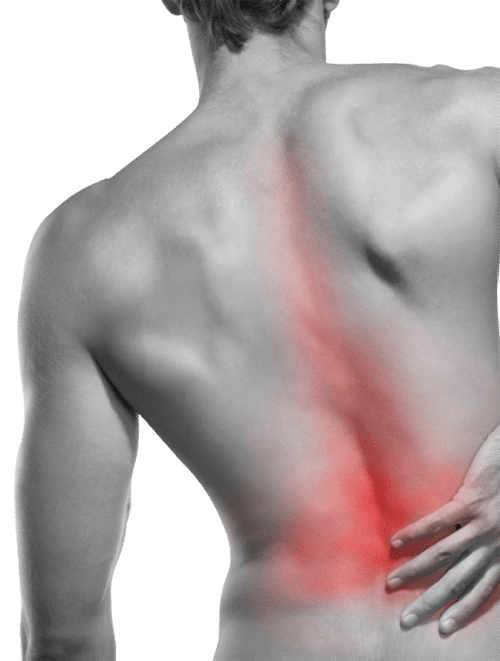If you are experiencing pain, it is essential to understand whether it is acute or chronic in nature. Chronic and acute pain are distinct forms of discomfort that differ in their causes, duration, and treatment options. At New Jersey Back Center, a group of pain centers led by board-certified interventional pain specialists, we are committed to helping you find relief from your pain. In this article, we will delve into the differences between chronic and acute pain and explore various treatment options available to you.

Understanding Acute Pain
Acute pain is often associated with a specific injury or illness and is generally short-term in nature. It serves as a warning signal that something is wrong in your body. Acute pain typically lasts for a short period, ranging from a few minutes to a few months, and subsides as the underlying cause of the pain heals. Examples of conditions that cause acute pain include a broken bone, surgical procedures, burns, or infections.
The Nervous System and Acute Pain
To comprehend how acute pain works, it’s important to understand the role of the nervous system. When you experience an injury or illness, specialized nerve receptors called nociceptors detect the damage and transmit pain signals to your brain. This process alerts your body to take immediate action, such as removing your hand from a hot stove or seeking medical attention for a broken bone. Once the injury or illness is treated, the pain signals subside, and the acute pain dissipates.
Treatment Options for Acute Pain
Treating acute pain typically involves addressing the underlying cause of the discomfort. Depending on the severity and nature of the injury or illness, treatment options may include medication, rest, physical therapy, or surgical intervention. At New Jersey Back Center, we offer comprehensive pain management services tailored to your specific needs, ensuring you receive the most effective treatment for your acute pain.
Understanding Chronic Pain
Chronic pain, on the other hand, is persistent and lasts for extended periods, often lasting for months or even years. Unlike acute pain, chronic pain may not have an obvious cause and can continue even after an injury or illness has healed. Conditions such as fibromyalgia, arthritis, neuropathy, and migraines are common causes of chronic pain.
The Complexity of Chronic Pain
Chronic pain is a complex condition that involves multiple factors, including physical, emotional, and psychological components. It can significantly impact your quality of life, leading to sleep disturbances, depression, anxiety, and decreased mobility. Unlike acute pain, chronic pain may not serve as a warning signal, but rather becomes a condition in and of itself.
Treatment Options for Chronic Pain
Managing chronic pain requires a multidisciplinary approach that addresses the physical, emotional, and psychological aspects of the condition. At New Jersey Back Center, we offer a range of treatment options for chronic pain, including medication management, physical therapy, and minimally interventional procedures. Our team of board-certified interventional pain specialists will work closely with you to develop a personalized treatment plan that aims to alleviate your pain and improve your overall well-being.
Types of Chronic Pain
Chronic pain can manifest in various forms, each requiring a tailored treatment approach. Some common types of chronic pain include:
- Neuropathic Pain: Neuropathic pain is caused by damage or dysfunction of the nervous system. This can occur due to conditions such as nerve compression, nerve injury, or diseases like diabetes. Neuropathic pain is often described as shooting, burning, or tingling sensations that can be intense and debilitating. It can occur in specific areas of the body or radiate along the affected nerves.
- Inflammatory Pain: Inflammatory pain is characterized by persistent pain and swelling due to inflammation in the body. Inflammation is a natural response of the immune system to injury or infection. However, in some cases, inflammation can become chronic, leading to ongoing pain. Conditions such as rheumatoid arthritis, inflammatory bowel disease, and autoimmune disorders can cause inflammatory pain.
- Musculoskeletal Pain: Musculoskeletal pain refers to pain that affects the muscles, bones, tendons, or ligaments in the body. It can result from various causes, including overuse injuries, trauma, poor posture, or underlying musculoskeletal conditions such as osteoarthritis or fibromyalgia. Musculoskeletal pain is often characterized by persistent discomfort, stiffness, and limited mobility.
- Central Pain: Central pain, also known as central sensitization, arises from dysfunction or damage to the central nervous system. This includes the brain and spinal cord. Conditions such as multiple sclerosis, stroke, or spinal cord injury can lead to central pain. The distinguishing feature of central pain is that it is not limited to a specific area but is rather widespread throughout the body.
- Headaches and Migraines: Headaches and migraines are types of chronic recurring headaches that can significantly impact daily activities and quality of life. Headaches are common and can be caused by various factors, including tension, sinus issues, or caffeine withdrawal. Migraines, on the other hand, are severe headaches that are often accompanied by other symptoms such as nausea, sensitivity to light and sound, and visual disturbances.
Seeking Professional Help
If you are experiencing chronic or acute pain, it is crucial to seek professional help from a pain specialist. At New Jersey Back Center, we have multiple locations across New Jersey, including Clifton, West Orange, Paramus, and Woodland Park, offering convenient access to our expert team. Our specialists are dedicated to providing comprehensive care and finding the most effective solutions to manage your pain.
Understanding the differences between chronic and acute pain is vital in determining the appropriate treatment approach. Acute pain serves as a warning signal for immediate action, while chronic pain persists for extended periods and requires a multifaceted approach to management. At New Jersey Back Center, we are here to support you in your journey toward pain relief and improved quality of life.





